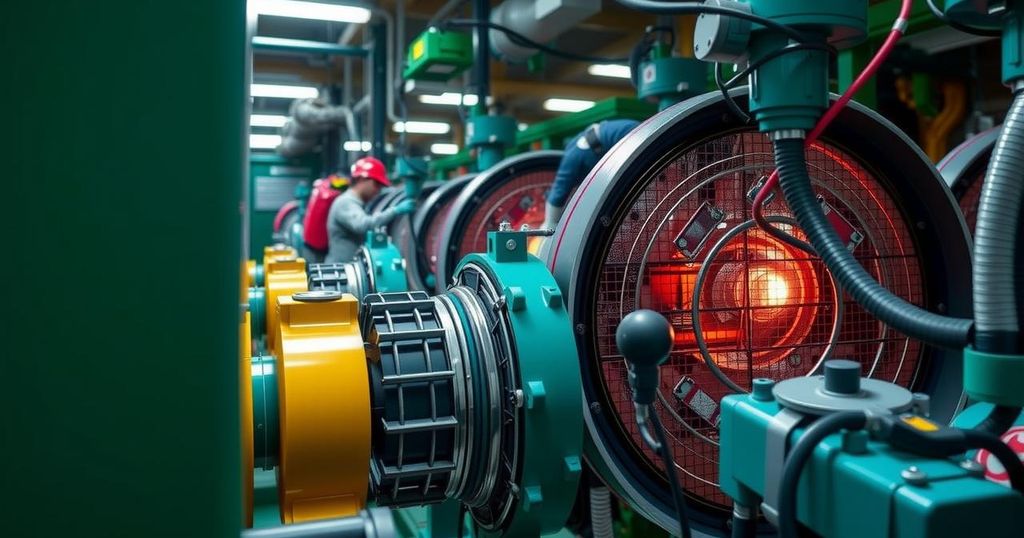Iran has announced the activation of new advanced centrifuges for its uranium enrichment program, responding to a critical resolution from the IAEA urging better cooperation. The resolution comes amid concerns regarding Iran’s potential to develop nuclear weapons, despite its claims of peaceful intentions. The geopolitical implications of this action could further strain international relations, particularly with the United States and European powers.
On Friday, Iran declared that it would commence the activation of new advanced centrifuges to enrich uranium for its nuclear program, responding to criticism from the United Nations’ International Atomic Energy Agency (IAEA). The state news agency IRNA reported that Iran plans to introduce a “noticeable number of new and advanced centrifuges of different types” as part of efforts to safeguard the nation’s interests and advance its peaceful nuclear energy initiatives. Although Iran contends that its nuclear endeavors are for peaceful purposes, the enhanced functionality of the centrifuges could enable a faster trajectory towards weapons-grade materials if desired.
This decision comes after the IAEA adopted a resolution on Thursday, urging Iran to enhance its cooperation with the agency and address ongoing concerns regarding traces of uranium residue found at undisclosed locations. Iran, criticizing the resolution as politically motivated, indicated that the demands stemmed from pressure from three European countries and the United States, warning of a potential corresponding response. Despite claims of peaceful intentions, IAEA Director Rafael Mariano Grossi has noted that Tehran possesses sufficient enriched uranium that could be utilized for nuclear weapon development if the political environment shifted in that direction.
Under the stipulated terms of a 2015 nuclear deal, Iran was confined to operating approximately 5,000 older-model centrifuges, with advanced models permitted solely for research applications. However, Iran has progressively diminished its commitments to the agreement following the United States’ withdrawal in 2018 and the reimplementation of economic sanctions. Consequently, by 2019, Iran had begun to activate new, more sophisticated centrifuges, fundamentally breaching the earlier accord. Recent statements from U.S. Secretary of State Antony Blinken indicate that Iran’s breakout time to produce weapons-grade material has now been compressed to as short as one or two weeks, which represents the most rapid timeframe recognized by U.S. officials to date.
Iran’s announcement regarding the activation of new centrifuges is set against a backdrop of ongoing tensions surrounding its nuclear program, particularly following the 2015 nuclear agreement. The accord was designed to limit Iran’s nuclear capabilities and prevent the development of nuclear weapons in exchange for sanctions relief. Over the past few years, the dynamics shifted significantly after the U.S. withdrew from the agreement, leading Iran to gradually phase out its commitments and resume more aggressive nuclear activities. The IAEA, tasked with monitoring compliance and addressing concerns about nuclear proliferation, has repeatedly engaged with Iran on these issues, making the latest resolution a pivotal moment in the international response to Tehran’s nuclear ambitions.
In conclusion, Iran’s activation of advanced centrifuges demonstrates a critical escalation in its nuclear program amidst international scrutiny and criticism from the IAEA. This move, framed by Iran as a protective measure for its national interests, emerges despite ongoing assertions of peaceful intentions. The political ramifications of such actions, coupled with the shortening timeline for potential weapons-grade material production, indicate an increasingly tense environment surrounding Iran’s nuclear trajectory and its interactions with global powers.
Original Source: www.cnn.com






